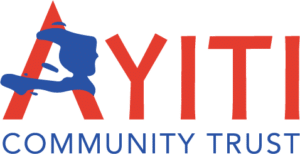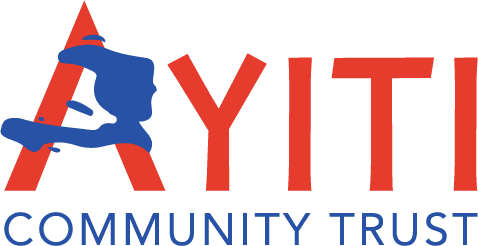Grantmaking for Haitian led innovation and solutions in Ayiti (Haiti)
Ayiti Community Trust (ACT) is a grantmaking community foundation. We offer nonprofit community-based organizations in Ayiti, especially in rural communities, an opportunity to share in our commitment to sustainable development by funding grants to innovative programs that are leading the way in one or more of the three pillars; civic education, environment, and entrepreneurship.
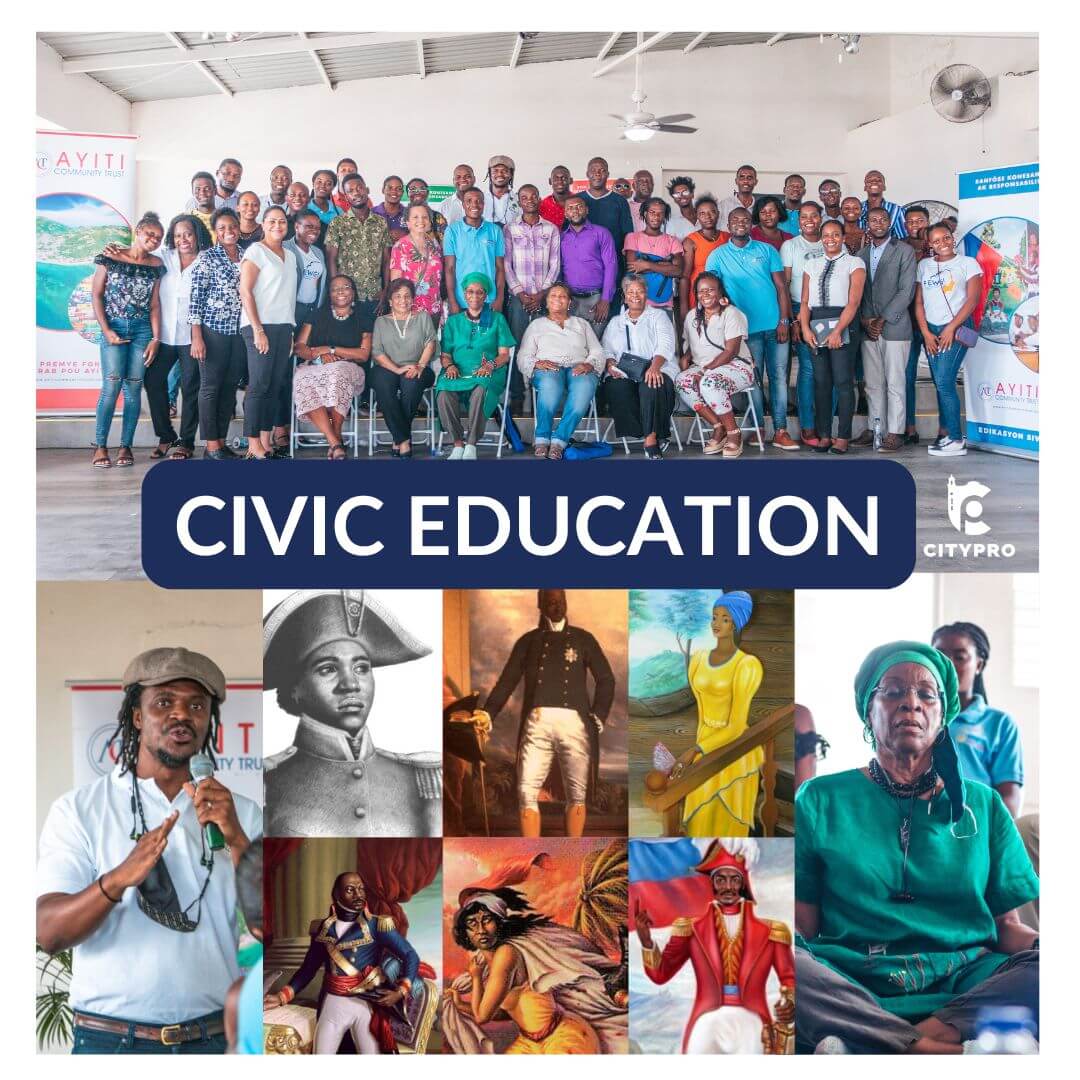
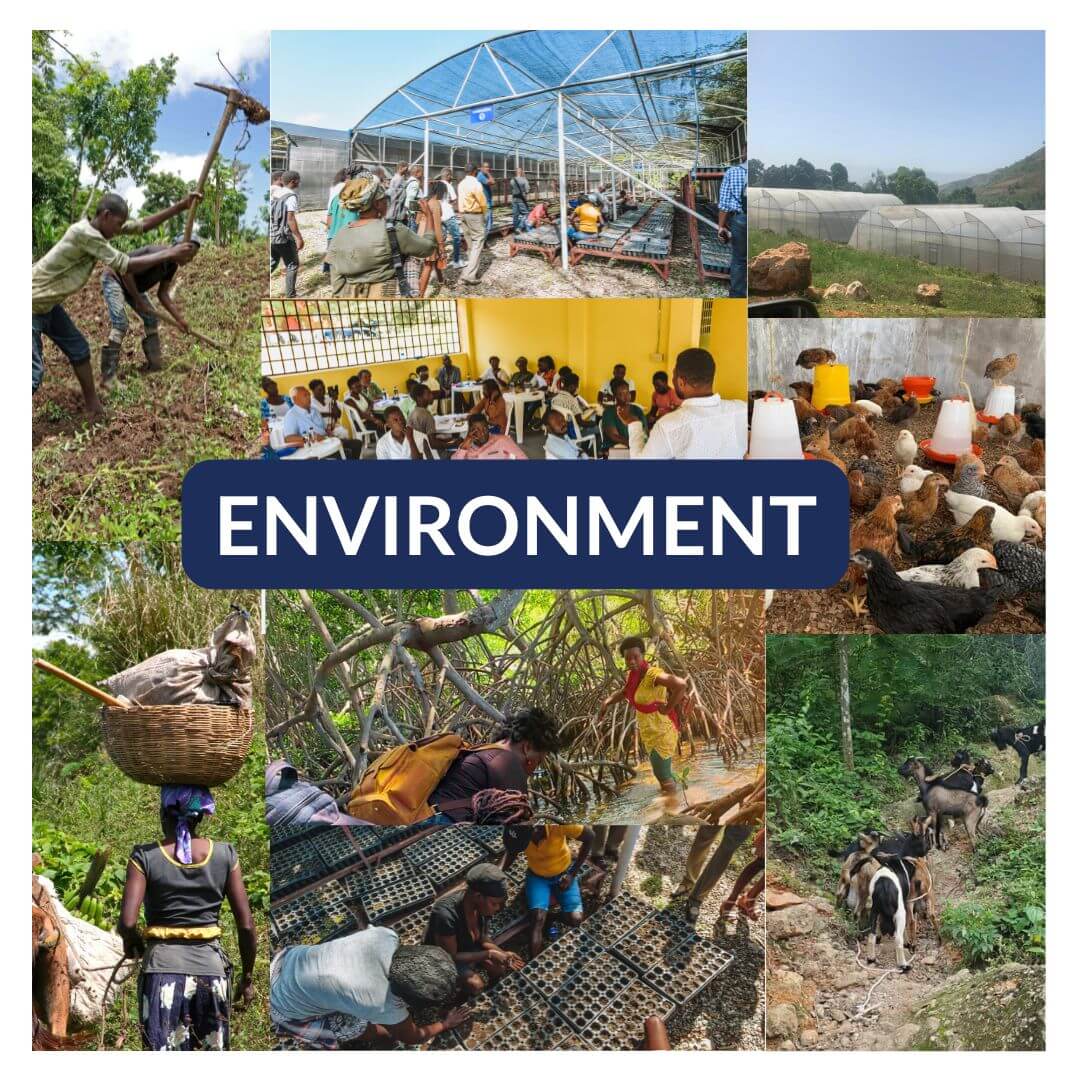
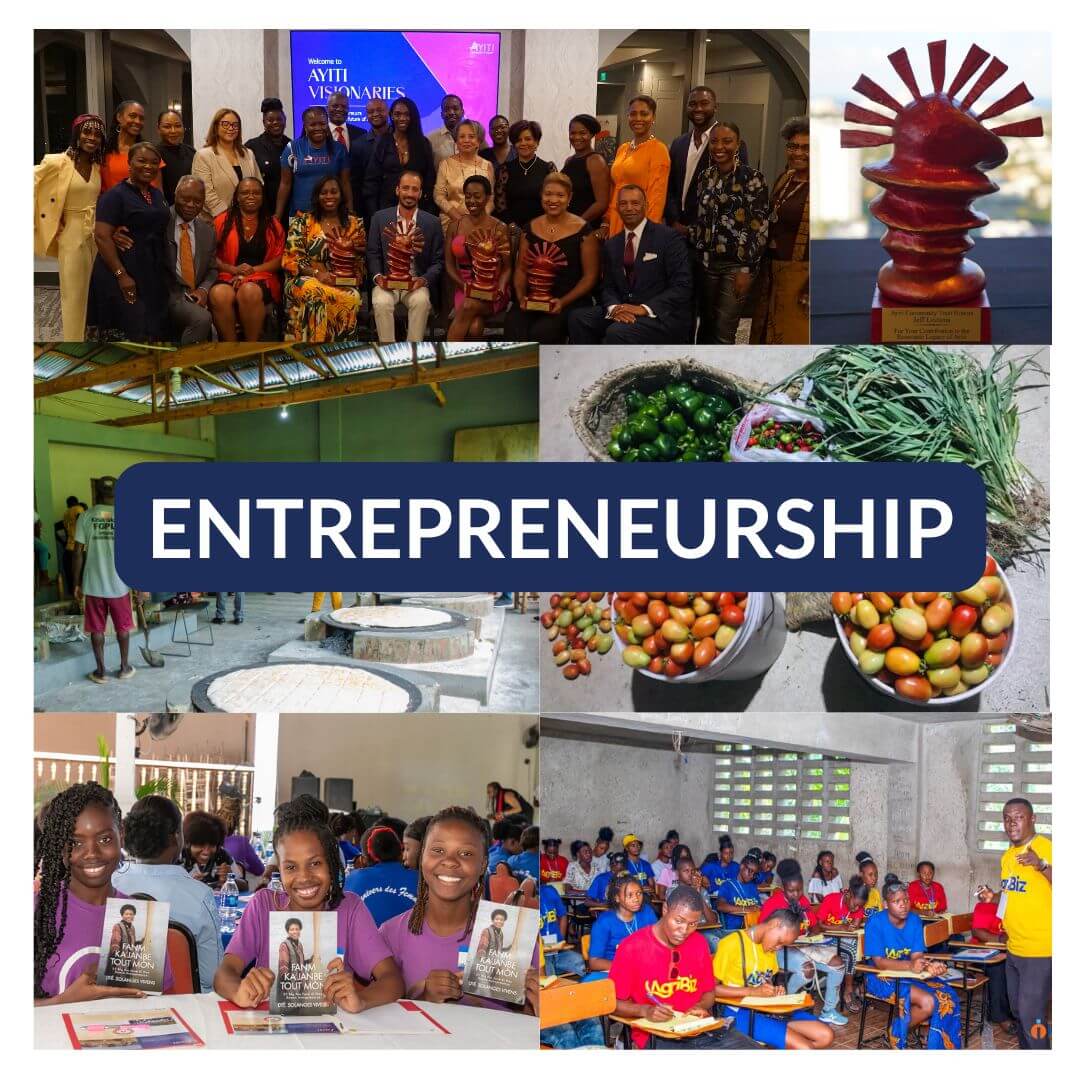
Current Grantees
AIES
Action pour l'Inclusion et Emancipation Sociale (AIES), based in Petion-Ville, West Department, seeks to address the lack of entrepreneurial opportunities for marginalized LGBTQ youth by training 20 individuals in cooking, baking, and entrepreneurship, alongside establishing a catering service. With its first grant from ACT, AIES plans to utilize its existing partnerships to secure kitchen spaces for practical and theoretical training. This initiative not only empowers LGBTQ youth with valuable skills but also aims to create sustainable income-generating opportunities within the community, aligning closely with ACT's priority to support entrepreneurship among marginalized groups.
OTADEP
Organizasyon Tèt Ansanm de Dèrivo Pestèl (OTADEP), located in Pestèl, Grandans Department, aims to train and establish 100 new family poultry businesses. The project's goal is to produce 45,000 chickens within a year, addressing Haiti's reliance on poultry imports and bolstering local farmers' competitiveness. OTADEP plans to provide training, vaccinated chicks, and market support to participating families. The project, designed collaboratively with the community, demonstrates a commitment to local empowerment. OTADEP also intends to expand its reach beyond Pestèl's 3rd section to cover the entire commune within five years. ACT sees this initiative as aligned with its priorities in promoting agricultural entrepreneurship, livestock development, and food security, potentially facilitating knowledge exchange with organizations like SOHADERK.
Coopérative des Acteurs de Pêche d'Environnement et d'élevage (CAPEELAG)
CAPEELAG is a cooperative of fishermen and local associations on the island of La Gonave working to protect coastal ecosystems that are critical to their livelihoods and well-being.
Mangroves are an essential component of the coastal ecosystem. They provide habitats for high-value marine species, prevent coastal erosion and storm surges, and sequester 10x more carbon than terrestrial trees. However, the cutting of mangroves for use in charcoal production has threatened their existence. CAPEELAG proposes to combat this trend by rehabilitating La Gonave's mangrove forests and establishing a community goat park to generate new sources of income that can help offset charcoal production money.
Soldarité Haitienne Pour Le Dévelopement De Kenscoff (SOHADERK)
SOHADERK works to reverse the environmental degradation of natural resources in the mountainous community of Kenscoff. They provide agricultural extension services and innovative trainings to a growing network of farmers in the region.
SOHADERK will train its network of farmers on the use of biofertilizer and biopesticides in order promote sustainable agricultural practices that protect the environment, increase farmer incomes, and yield more nutritious foods. This will serve as a demonstration project that could be expanded to new communities across Haiti whose livelihoods are dependent on agriculture and a thriving natural environment.
Basketball pou Ankadre Lajenès (BAL)
BAL uses basketball as a tool to educate and mentor vulnerable Haitian youth. In addition to basketball, participants partake in a wide variety of educational and enrichment activities designed to maximize their capacity as citizens and keep them out of trouble. BAL operates in two of Port-au-Prince's most underserved urban neighborhoods: Cité Soleil and Martissant.
BAL proposes to use ACT funding to launch a citizenship program that will catalyze a new generation of youth citizen-leaders. Participants will receive innovative training in civic education and community service that will help them grow into agents of change for a new Haiti. A portion of awarded funds will also be used to cover the organization's operating costs.
Grant Application Process
ACT’s vision is to build a permanent endowment, created by the people and friends of Ayiti, that invests in the nation’s strengths and its founding principles of liberty, fraternity, and equality. The yield from ACT’s endowment funds support Haitian-led innovations through a rigorous grant-making process.
Organizations registered in Ayiti (Haiti), led by Haitians, and whose missions and programs focus on one or more of ACT’s interconnected pillars of environment, entrepreneurship, and civic education.
Learn about ACT and its grantmaking priorities and process
- Participate in the online grant application information session or watch the recording: Seyans Enfòmasyon _ Information Session-20240408_151520-Meeting Recording.mp4
- Review the description of past and current grantees on the website
- Follow ACT on social media to understand how the organization views Haiti and communicates on IG/Facebook: @ayiticommunitytrust
Fill out this form (Letter of Interest) : https://forms.office.com/r/53T88e9qed that includes the following:
- Name and legal status of the requesting organization.
- Technical area of intervention (civic education, environment, or entrepreneurship).
- Region of intervention in Haiti (department, city, town)
- Organization’s legal representative/Point of contact.
- Website and/or social media presence.
- Description of the need for support or the problem and the proposed project.
ACT will review LOIs.
ACT will send invitations to submit full proposals with complete instructions and selection criteria.
ACT will send emails informing those not selected to move forward.
If you are invited to do so by ACT, submit a full proposal that covers the following:
- a presentation in any format that best highlights your organization.
- a brief video, a written proposal, a slide presentation, or any other format in which you are most comfortable.
- submit all legal documents and supporting documents from your organization.
IMPORTANT NOTES:
- Please be as brief as you need to be to communicate the importance and impact of your work.
- We request that all proposals are submitted in Kreyòl or English.
ACT will review full proposals.
Organizations that submit a full proposal will receive a written notification of approval or denial of funding.
To Submit a Letter of Interest (LOI) –EMAIL [email protected]
2024 ACT GRANTEE APV
Frequently Asked Questions
1. What is the Ayiti Community Trust (ACT) and its mission?
ACT is a community foundation dedicated to supporting development innovation in Haiti in the areas of civic education, environment, and entrepreneurship. Its mission is to build a permanent endowment that invests in Haitian-led innovations, aligning with the nation's principles of liberty, fraternity, and equality.
2. Who is eligible to apply for grants from ACT?
Organizations registered in Haiti, led by Haitians, and focusing on one or more of ACT's pillars: environment, entrepreneurship, and civic education.
3. What is the first step in the grant application process?
Fill out the Letter of Interest form, including details such as organization name, legal status, technical area of intervention, region of intervention in Haiti, contact information, and a description of the need for support or proposed project.
4. How does ACT review Letters of Interest (LOIs)?
ACT will review LOIs and send invitations to submit full proposals to selected organizations. Those not selected will receive emails informing them of the decision.
5. What should be included in a full proposal?
- A presentation highlighting the organization.
- A brief video, written proposal, slide presentation, or any preferred format.
- All legal and supporting documents from the organization.
- Questions can be submitted to [email protected].
- Proposals must be submitted in Kreyòl or English.
6. How do I submit a complete proposal?
Send an email with all documents attached to [email protected]
If there are links, provide access to the file for easy accessibility.
7. What happens after submitting a full proposal?
ACT will review full proposals and notify organizations in writing of approval or denial of funding.
8. Does my organization need to be legally registered in Haiti to apply for grants from the ACT?
While your organization does need to be legally registered in Haiti to be eligible to receive grants from ACT, you can still initiate the application process by filling out the Letter of Interest form. However, please note that to proceed further in the application process and be eligible for funding, you will need to comply with the legal requirements and complete the legalization process for your organization. We encourage you to take the necessary steps to regularize your organization's status, and you can apply while awaiting responses from the public administration.
9. How much funding can my organization expect to receive from ACT for a project?
The amount of funding available depends on ACT's budget for the period and the discretion of the jury responsible for evaluating grant applications. The jury will assess each project's merits and determine the appropriate amount of funding to be awarded in the form of a grant.
10. If my organization has already received a grant from the Ayiti Community Trust (ACT) in the past, can we apply for funding again?
Yes, organizations that have previously received a grant from ACT are eligible to apply for funding again.
11. Who do I contact about ACT grant process?
Melodie Cerin, Strategic Community Partnerships [email protected]
John Peter Adolphe, Grantee Field Supervisor [email protected]
